EU proposals to revive JCPOA can be acceptable if Iran assured of key demands: Informed diplomat
The European Union's proposals to revive the 2015 nuclear deal “can be acceptable" if they give assurances that Iran's key demands on various issues are met, an informed Iranian diplomat says.
"Europe's proposals can be acceptable if they give confidence to Iran on various issues, including political claims related to safeguards [issues], sanctions and guarantees on the durability of an agreement," IRNA on Friday quoted an Iranian diplomat familiar with the process of negotiations between Tehran and the P4+1 group of countries on the revival of the nuclear deal, officially known as the Joint Comprehensive Plan of Action (JCPOA).
Four days of Vienna talks between representatives of Iran and the five remaining parties to the JCPOA to salvage the deal culminated on Monday with a modified text on the table.
While the European Union foreign policy chief Josep Borrell claimed the “final text” had been reached, Iran emphasized it has conveyed its “initial response and reservations” on the draft text.
The Iranian diplomat told IRNA that Tehran was reviewing the EU proposals to make sure that all its key demands are guaranteed.
Iran and the remaining parties to the JCPOA -- Russia, China, France, Britain, and Germany -- started talks in the Austrian capital of Vienna in April last year. While the parties noted progress in multiple rounds of talks, the indecisiveness shown by Washington has prevented any significant breakthrough.
Last month, the negotiations were hosted in the Qatari capital of Doha in a different format, with Tehran and Washington holding indirect talks mediated by the European Union. Those talks also failed to produce any tangible result due to the excessive demands of the US.
After several months of impasse, the Vienna talks resumed on Thursday. Expert-level negotiations have been held between Iran and the P4+1 group of countries.
In a phone call on Monday, Iranian Foreign Minister Hossein Amir-Abdollahian told Borrell that "all parties [to the JCPOA] are expected to show seriousness and resolve in order to achieve the final text of the agreement."
The top Iranian diplomat added that any final agreement must meet the rights and interests of the Iranian nation and guarantee sustainable and effective removal of sanctions imposed on the country.
Russia welcomes final agreement on JCPOA revival
Russia's chief negotiator in the Vienna talks, Mikhail Ulyanov, also on Friday rejected claims that Moscow opposes the restoration of the JCPOA, saying the final agreement would lower tensions within the Persian Gulf and elevate unilateral sanctions against Iran.
"Russia does not like illegitimate extraterritorial sanctions. We consider this an outrage and illegal action. We sympathize with the people of Iran, who have been under sanctions for so many years," Ulyanov, who serves as Russia’s Permanent Representative to International Organizations in Vienna, said in an interview with the Russian Izvestia Daily.
Pointing to the EU proposals, he said, "In principle, we can assume that the text has been agreed almost completely. The Iranian side had separate questions regarding just a few words, a few lines. Everything else is considered agreed."
"There will most likely be no lengthy negotiations in the foreseeable future. It all depends on whether all the states participating in the negotiations, including Iran in the first place, agree to the version of the package solution that was circulated on August 8," the senior Russian diplomat stated.
Ulyanov expressed hope that no "stumbling block" would happen during discussions about the details of a final agreement.
In an earlier post on his Twitter account, Ulyanov threw his country's weight behind the JCPOA restoration as "the only reasonable and effective way ahead."
#Russia is convinced that restoration of the #JCPOA is the only reasonable and effective way ahead. It would result in lifting of illegal #sanctions against #Iran, strengthening non-proliferation and creating better conditions for developing regional security dialogue.
— Mikhail Ulyanov (@Amb_Ulyanov) August 11, 2022
"It would result in lifting of illegal sanctions against Iran, strengthening non-proliferation and creating better conditions for developing regional security dialogue," he tweeted.
Hamas rejects temporary truce offer, calls for complete ceasefire in Gaza
Iran among top nuclear technology countries: AEOI chief
Democrats 'risk losing' election for backing Israeli war on Gaza, Lebanon: US journalist
Protesters remove busts of Israel's first president from Manchester Univ.
VIDEO | Hezbollah drones
US involvement in Israel’s 'regional war' unconstitutional, lawmakers tell Biden
107 years of Balfour Declaration that paved way for extermination of Palestinians
Hezbollah strikes Israeli military base near Tel Aviv


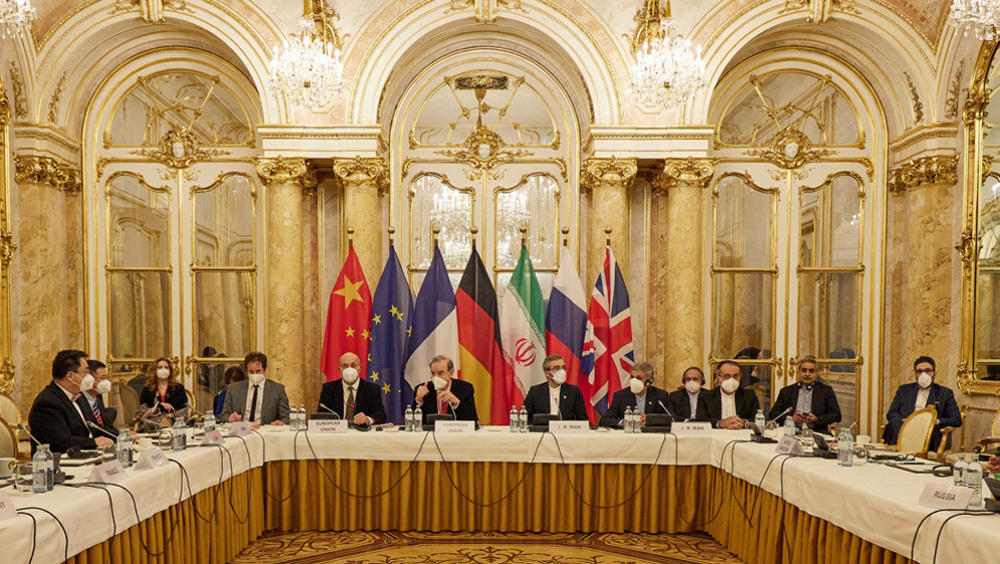
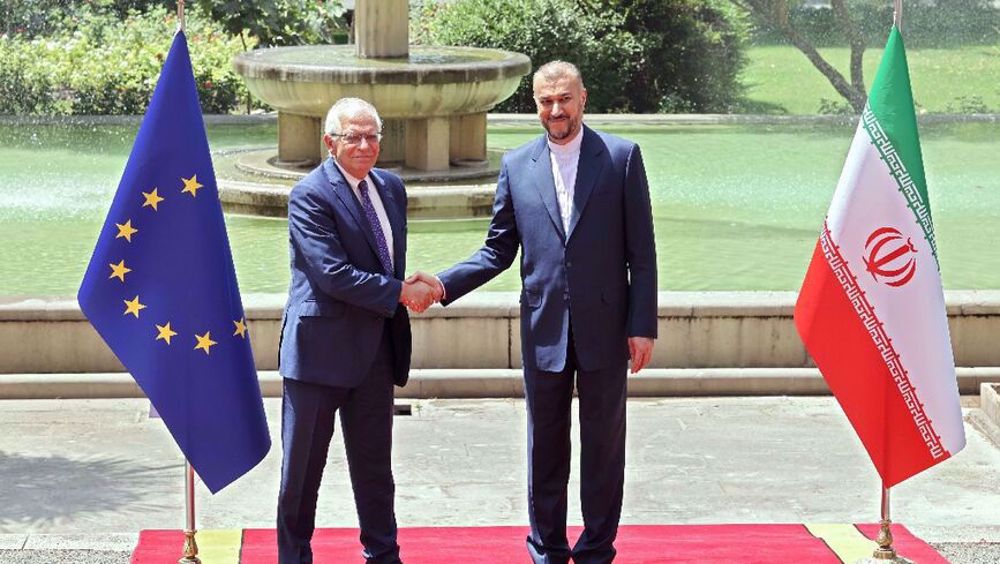
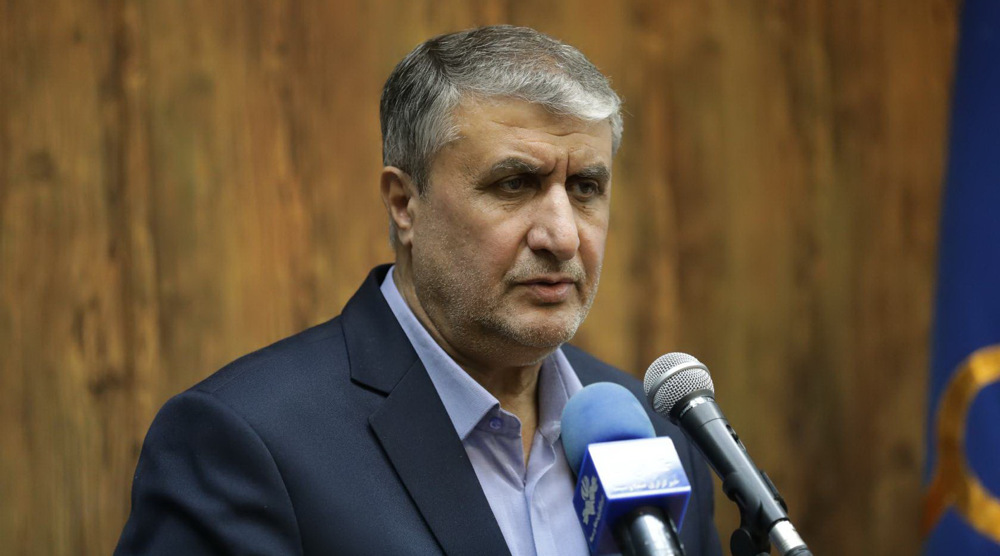
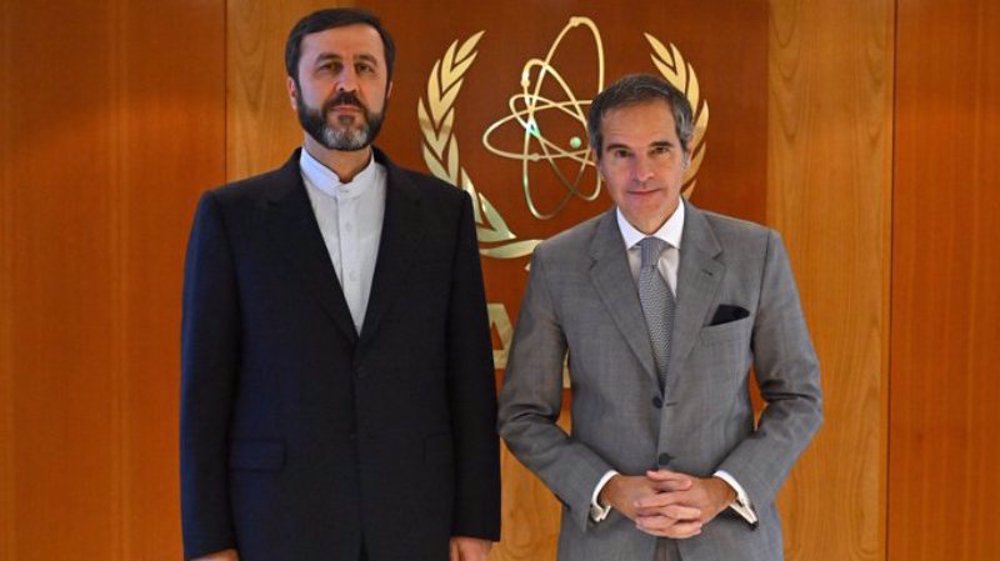
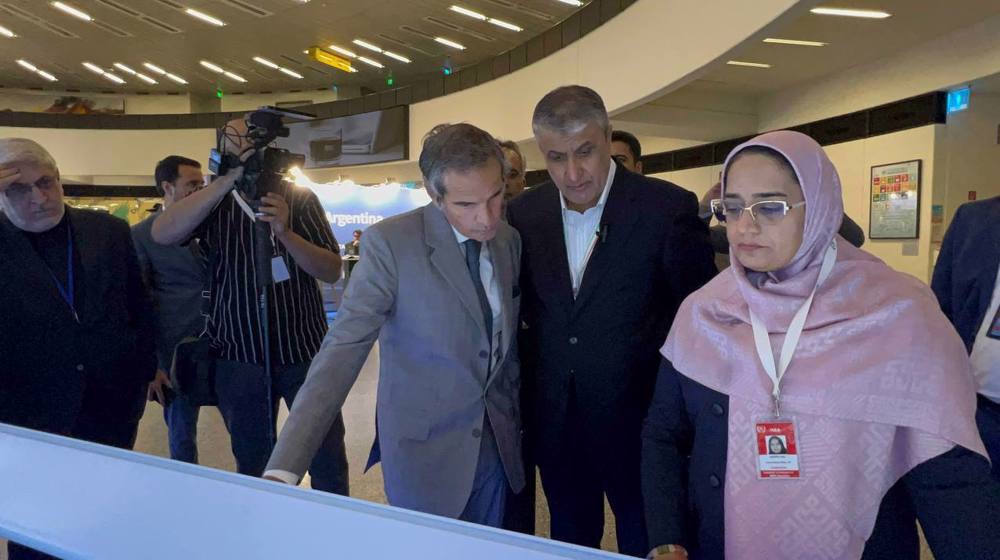



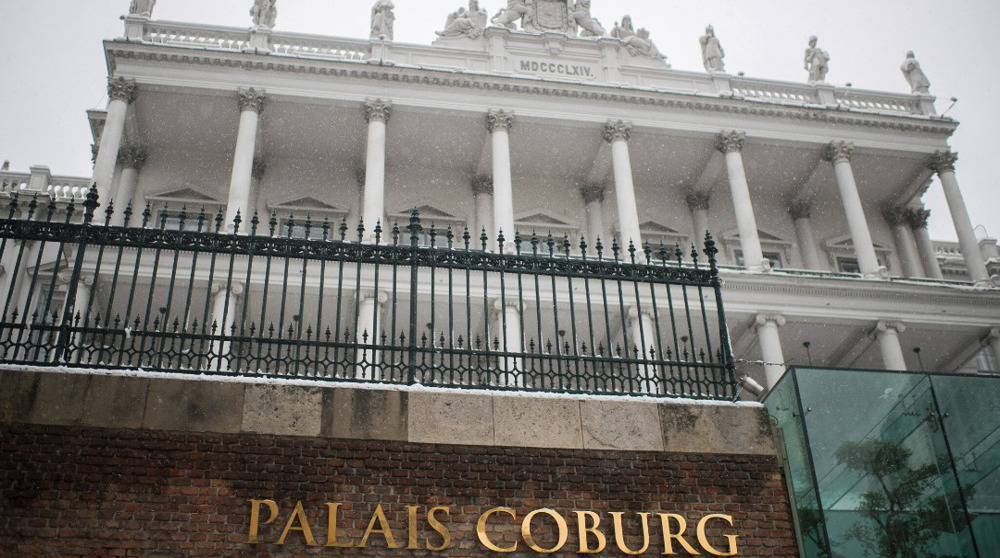
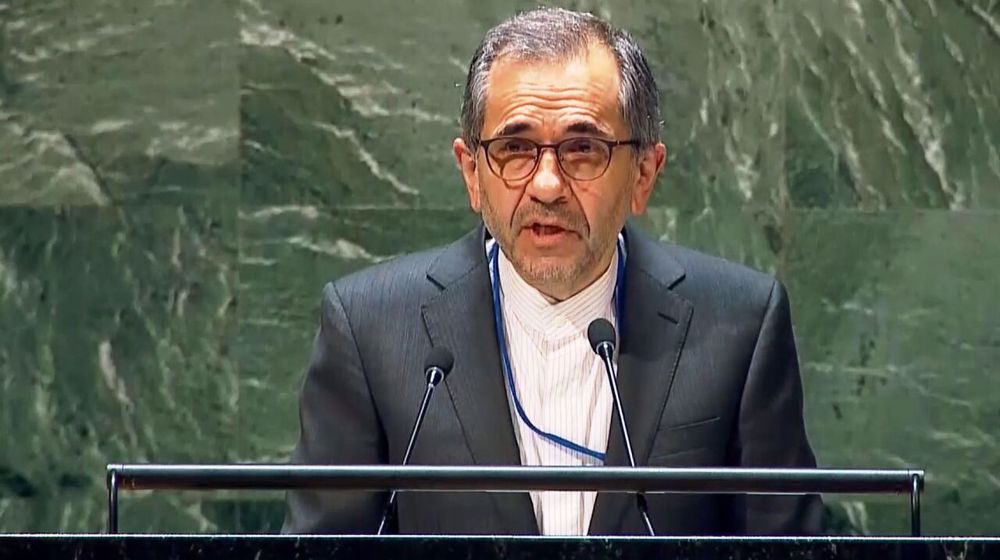
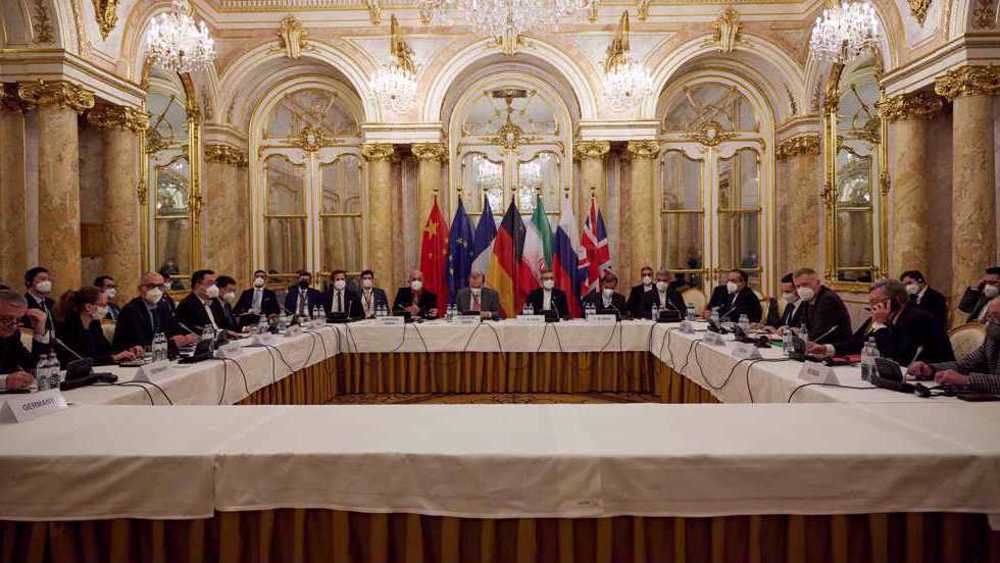
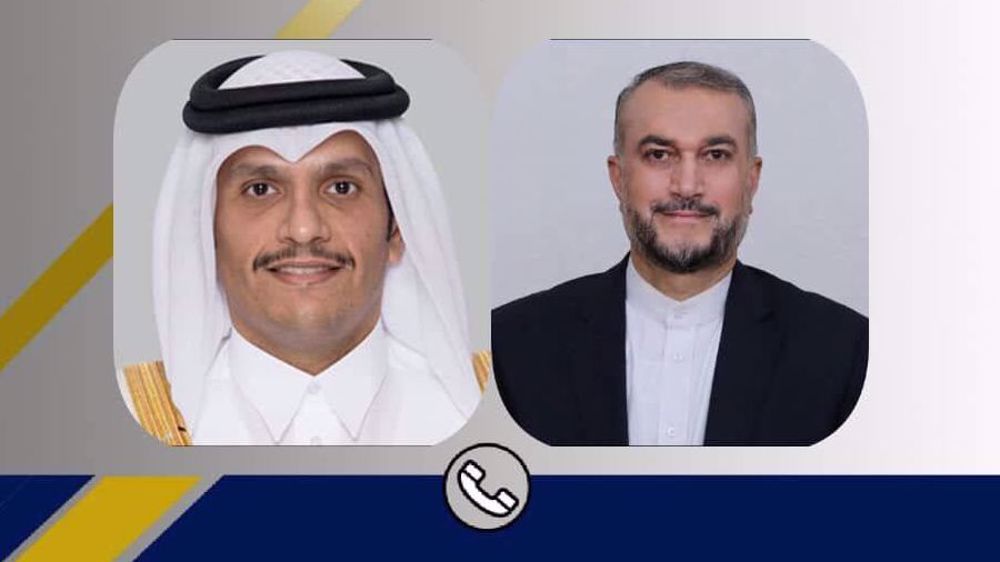

 This makes it easy to access the Press TV website
This makes it easy to access the Press TV website